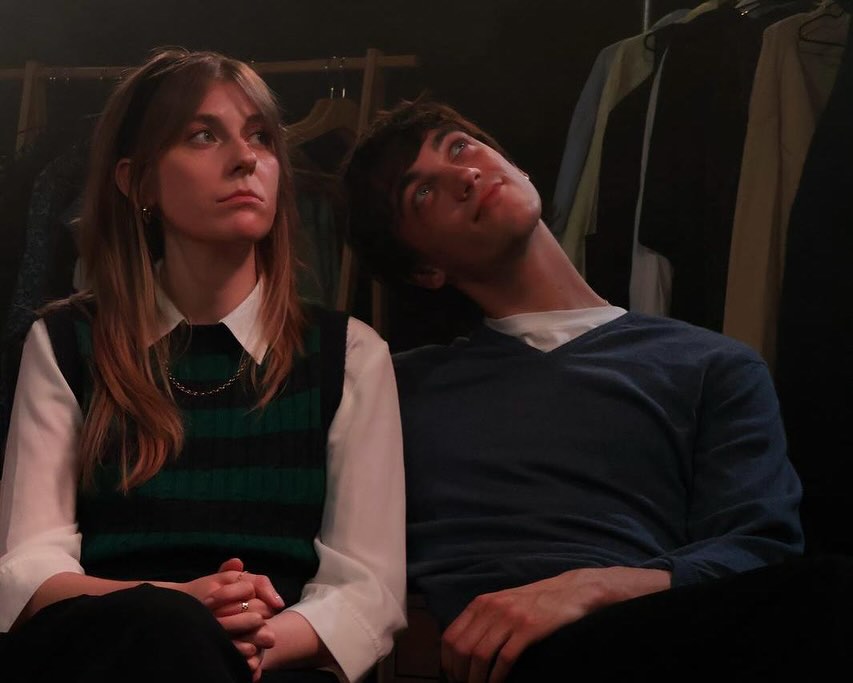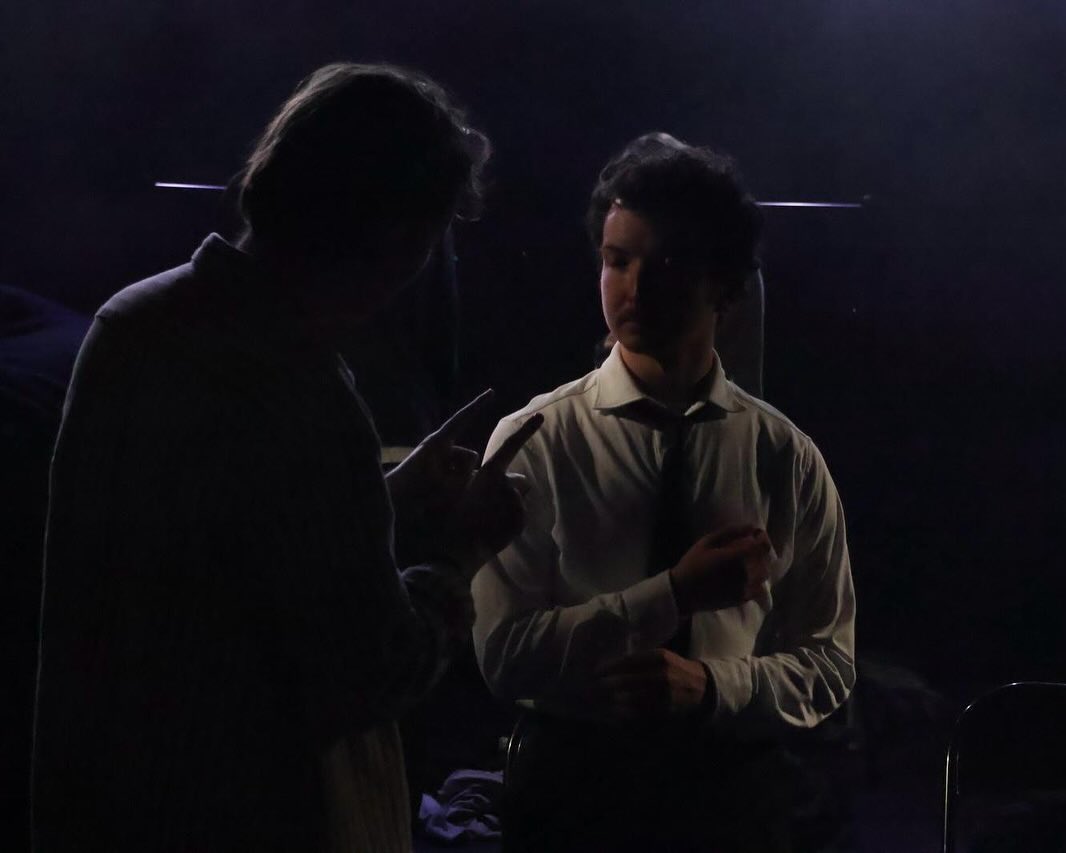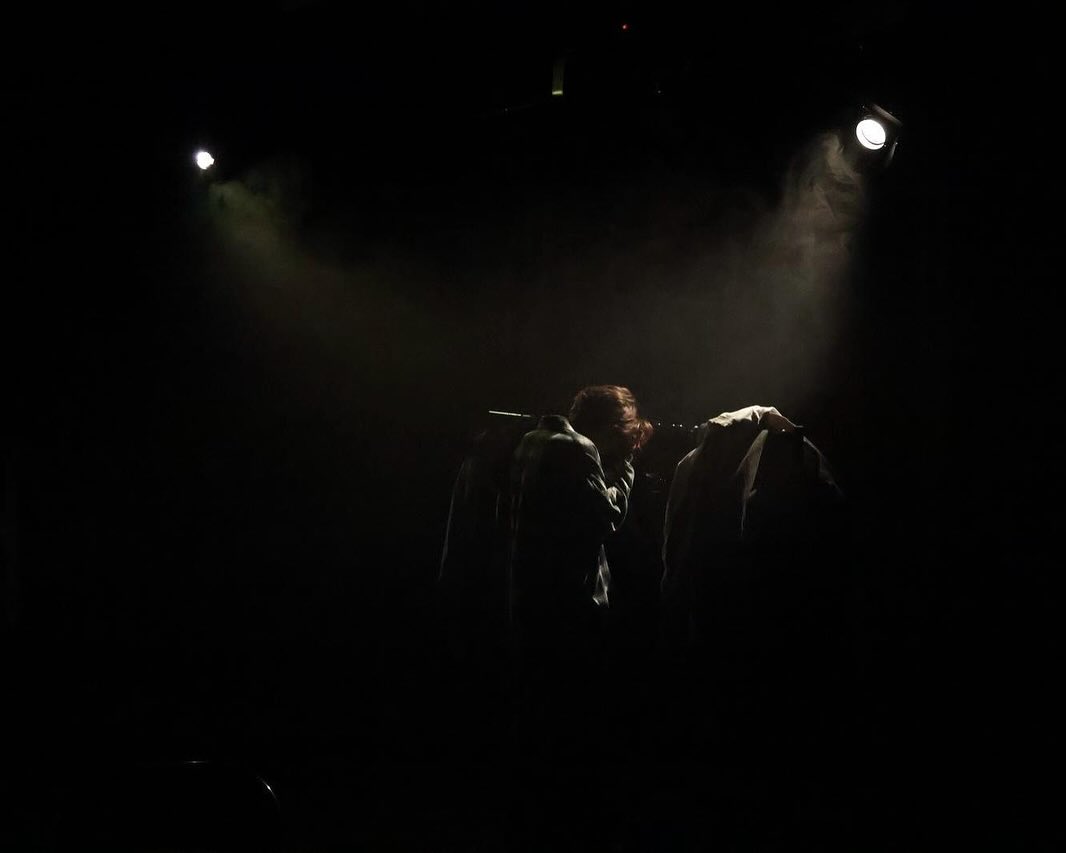Stepping into Dick. at Riverside Studios feels like entering the aftermath of a late-night reckoning—a dimly lit living room washed in red light, where five friends circle each other, bracing for honest admissions that are both thrilling and terrifying. This production, born from the success of its London and Edinburgh Fringe runs, wears its boldness on its sleeve: seductive, awkward, sometimes sprawling, but undeniably alive.
The show pivots around the restlessness of turning twenty-six—that borderland where youthful abandon meets creeping adulthood. Moments are tasted fully: the stuttering confessions, the crackle of sexual electricity, the hope that speaking one’s truth will tether friends more closely. The dialogue breaks free from the predictable; it doesn’t shy away from kink, drug use, or suicidal despair, weaving them into late-night conversations full of frankness and contradiction.

From the outset, the ensemble carries the show with natural chemistry. Joseph Lynch’s Noah is a rambling philosopher hopped on his own advice—both comic and achingly self-aware. Frederick Russell’s Ruby bursts with chaotic charm, set off by Max Brennan's steady, soulful River. Andi Bickers brings sparkle to Bailey’s surface joy, yet reveals fissures of vulnerability underneath. Nina Fidderman’s Cleo stands quietly apart, her silence giving weight to the group's turbulent honesty—each performer staking out emotional territory and making it feel lived-in.
The play’s first act hums with wit and recognition. Conversation flows like caffeine-laced confessionals—talk of lust, fear, boredom, yearning. It’s easy to feel seen, to nod along. But the second act shifts tone: philosophical musings deepen, the pace slows, and intention sharpens—until that whispered, wordless scene between River and Ruby lands with breathtaking intimacy. It’s here the show begins to breathe as theatre, not just a collection of essays.

Still, the journey isn’t seamless. That tonal shift in act two may jar some—what began as a playful, poignant observation morphs into a heavier, more confrontational exploration. For some, the lamp-lit room turns shrill, the mood feels uneven, and philosophical monologues become a weight that drags. A dom/sub scene, arresting in theory, sometimes drifts without the clarity it needs to anchor the narrative fully.
Yet even at its most scattered, Dick. has bravery at its centre. It expects the audience to hold the paradoxes without explanation, to sit in awkwardness without exorcism. Rediscovering emotional bloom in a drawn-out silence; allowing a joke to dissolve into discomfort. It’s the kind of theatre that doesn’t pamper viewers—it challenges, it complicates.

By its close, the show doesn’t tie everything neatly but instead leaves residues—echoes of longing, the tension between desire and dread, the scarcity of time and trust. It’s messy like friendship, fragile like youth, bold like recklessness. Never perfect, often overlong, but full of vitality and truth.
In the end, Dick is a confession chamber, a thrill ride, and an experiment in emotional endurance. It demands attention, readiness, and a pinch of discomfort. And for those willing to sit with the questions it poses—about intimacy, identity, and the ache of growing up—it offers fragments that linger long after the lights come up.

